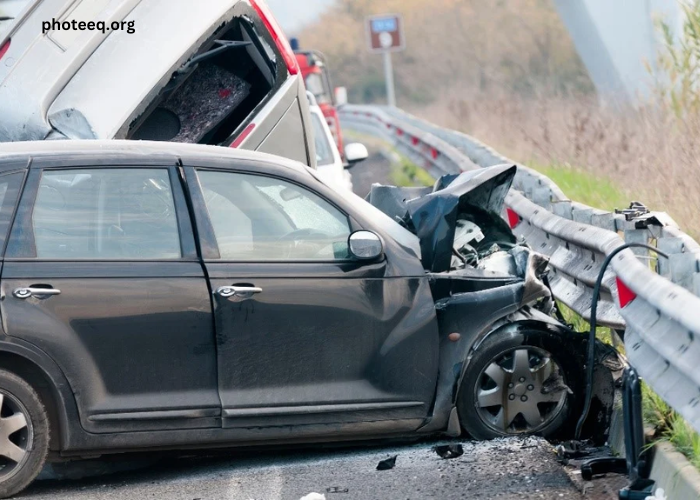Car accidents can have devastating consequences, resulting in significant injuries, property damage, and even loss of life. In such cases, victims often seek legal recourse to obtain compensation for their losses.
Car accident litigation can be a complex and challenging process, requiring the expertise of various professionals, including attorneys and expert witnesses. This article aims to provide an attorney’s perspective on the role of expert witnesses in car accident litigation.
The Importance of Expert Witnesses
Expert witnesses play a crucial role in car accident litigation. These individuals possess specialized knowledge, training, and experience in specific fields related to car accidents. Their primary responsibility is to provide the court with objective and unbiased opinions based on their expertise.
Expert witnesses can significantly impact the outcome of a car accident case by helping the court understand complex technical, scientific, and medical evidence. Expert witnesses are called upon to provide their professional opinions on various aspects of a car accident case. For example, an accident reconstruction expert may be called to analyze the scene of the accident and provide a detailed explanation of how the collision occurred.
This can help the court determine liability and assess damages. Medical experts, on the other hand, are often enlisted to evaluate the extent of injuries sustained by the parties involved. They can provide insight into the long-term consequences of these injuries and the associated costs of medical treatment and rehabilitation.
In addition to accident reconstruction and medical experts, there are other types of specialists who may be called upon in car accident litigation. These can include engineers, biomechanics experts, automotive experts, and human factors experts, among others. The role of an expert witness is not only to provide their professional opinion, but also to present their findings in a clear and understandable manner to the court.
They must be able to break down complex technical information and present it in a way that the judge and jury can comprehend. Expert witnesses are typically hired by one or both parties involved in the litigation. Their opinions can help support a party’s argument and strengthen their case. However, it is important to note that expert witnesses are expected to be impartial and provide unbiased opinions based solely on their expertise.
Ultimately, the testimony of expert witnesses can greatly impact the outcome of a car accident case. Their specialized knowledge and experience can help the court make informed decisions, leading to a fair resolution for all parties involved.
Qualifications of Expert Witnesses
Expert witnesses must meet certain qualifications to be considered credible and admissible in court. These qualifications may vary depending on the jurisdiction and the specific requirements of the case. Generally, expert witnesses should have:
- Education and expertise: Expert witnesses should have extensive knowledge and experience in their respective fields. They should possess the necessary qualifications, such as degrees, certifications, and licenses, to demonstrate their expertise.
- Relevant experience: Expert witnesses should have practical experience in their field that is directly relevant to the case at hand. This could include work experience, research, publications, or previous testimonies in similar cases.
- Impartiality: It is crucial for expert witnesses to remain impartial and unbiased. They should not have any personal or financial interest in the outcome of the case. Being independent and objective in their analysis and opinions is essential.
- Good communication skills: Expert witnesses must be able to effectively communicate complex concepts and technical information to the judge and jury. They should be capable of presenting their findings and opinions in a clear and understandable manner.
- Adherence to professional standards: Expert witnesses should adhere to the ethical and professional standards of their respective fields. They should conduct their work with integrity, honesty, and objectivity.
- Familiarity with legal procedures: Expert witnesses should have a solid understanding of the legal system and court procedures. They should be able to follow and comply with the rules of evidence and be prepared to withstand cross-examination.
- Ability to withstand scrutiny: Expert witnesses should be prepared to have their credentials, methodology, and opinions thoroughly scrutinized by opposing counsel. They must be able to defend their qualifications and demonstrate the reliability and validity of their findings.
- Unbiased opinion: Expert witnesses should base their opinions on reliable and accepted scientific methods and principles. They should avoid any personal biases or prejudices that could compromise the credibility of their testimony.
- Continual professional development: Expert witnesses should stay updated with the latest advancements and research in their field. They should engage in ongoing professional development to ensure that their knowledge and expertise remain current.
- Recognition by peers: Recognition and respect from their professional peers can enhance the credibility of expert witnesses. Awards, honors, and invitations to speak at conferences or contribute to publications can demonstrate their standing in the field.
The Role of Expert Witnesses in the Litigation Process
Once retained by an attorney, expert witnesses become important members of the litigation team. Their role extends beyond providing expert opinions in court. Expert witnesses help rideshare accident attorneys in various aspects of the litigation process, including: conducting research and analysis, reviewing documents and evidence, preparing reports and presentations, assisting with depositions and witness interviews, and providing guidance and advice on strategy and case preparation.
They bring their specialized knowledge and experience to bear on the case, helping attorneys understand complex technical or scientific concepts and presenting their findings in a clear and persuasive manner. Expert witnesses also play a critical role in helping attorneys assess the strengths and weaknesses of their cases and develop effective arguments and strategies.
They may be called upon to testify in court, but their contribution to the litigation team goes far beyond that. By working closely with attorneys, expert witnesses bring valuable insights and expertise, ultimately helping to increase the chances of a successful outcome for their clients.
Conclusion
Expert witnesses play a vital role in car accident litigation, providing the court with specialized knowledge and objective opinions. Their expertise helps the court understand complex technical and scientific evidence, ultimately influencing the outcome of a case. Attorneys rely on expert witnesses to evaluate the strength of a case, prepare for trial, and present compelling arguments. As car accident litigation continues to evolve, the role of expert witnesses will remain crucial in ensuring justice for accident victims and fair resolution of their claims.





